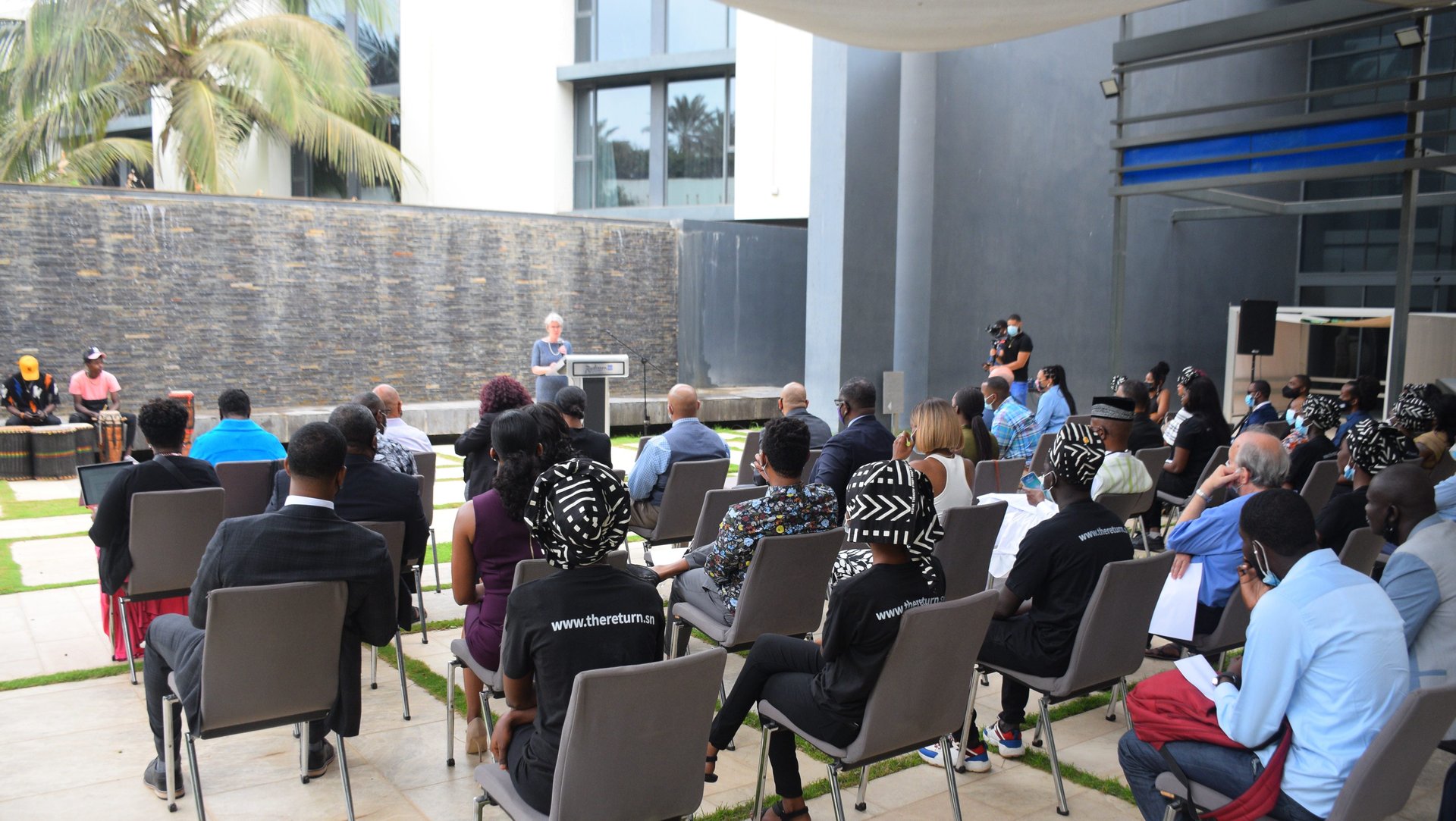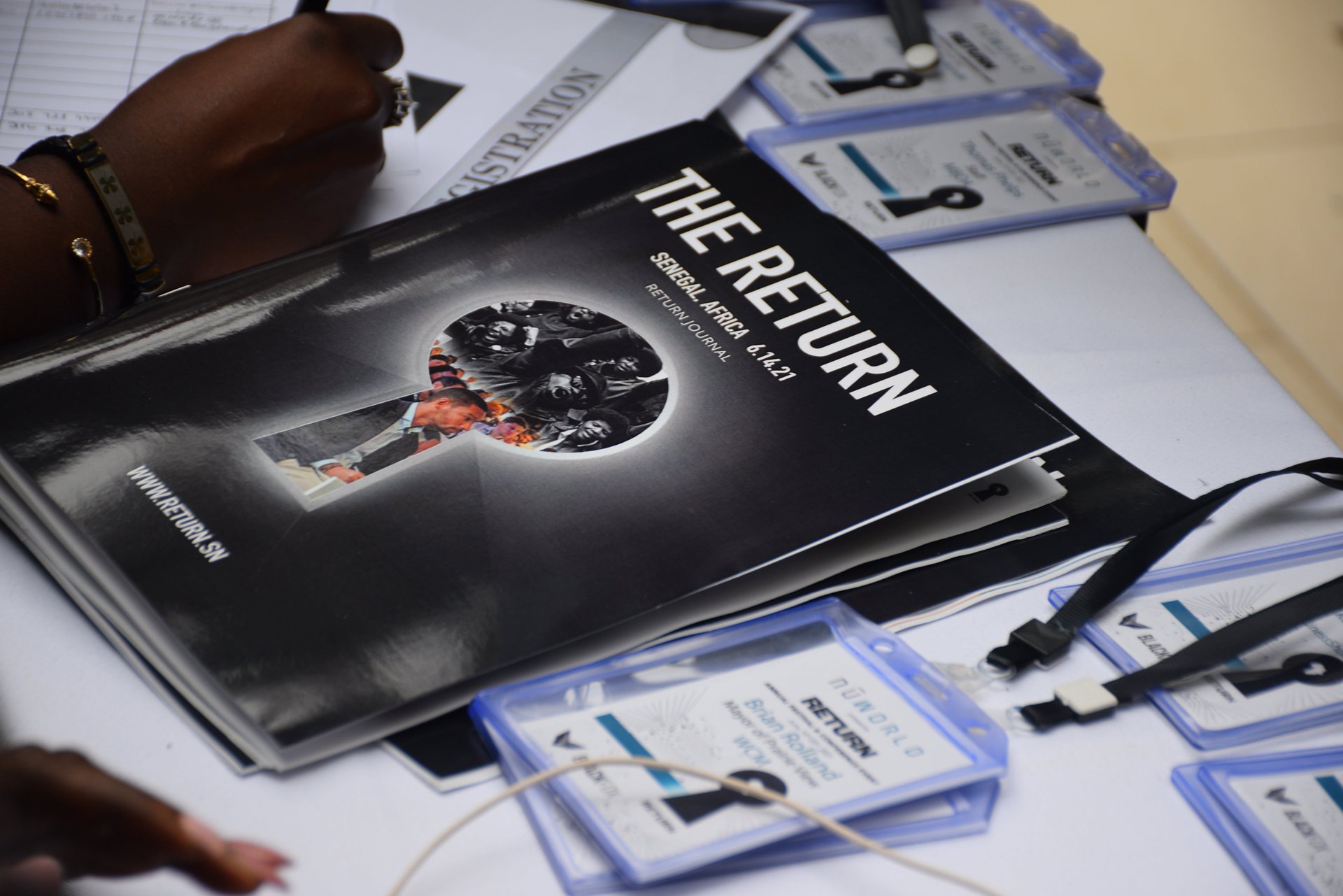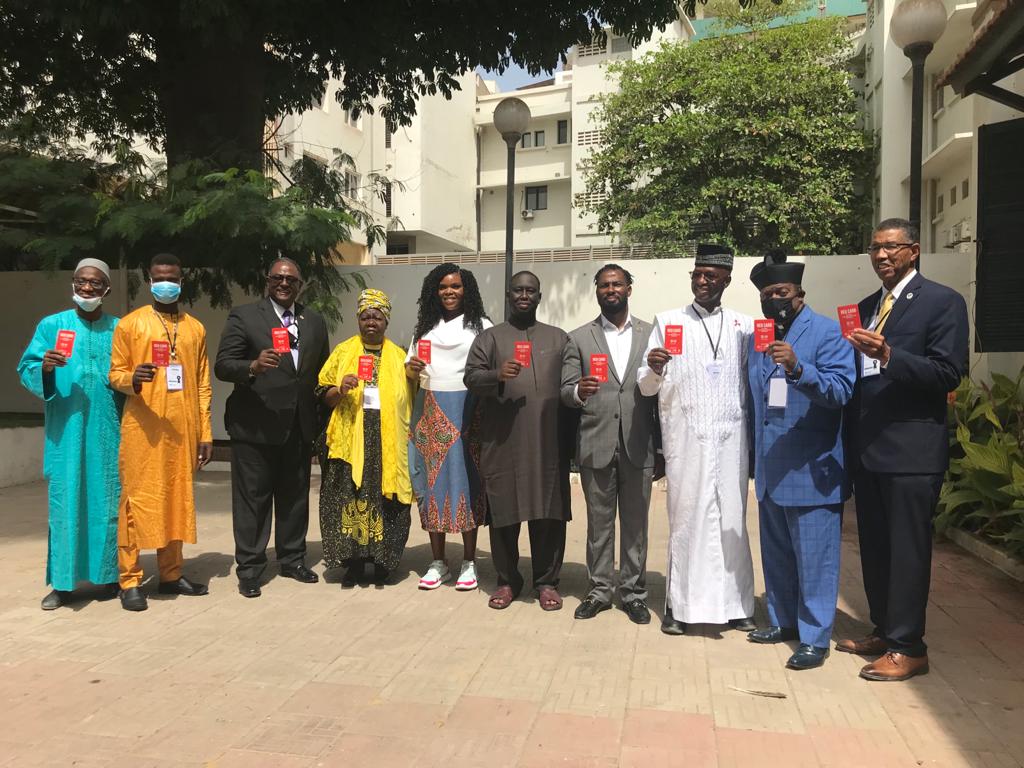African Americans view Senegal as an ancestral homeland—and business opportunity
A few months after discovering from a DNA test that most of his ancestors were from west Africa, American businessman Kyle Jones got on a flight to Dakar, Senegal.


A few months after discovering from a DNA test that most of his ancestors were from west Africa, American businessman Kyle Jones got on a flight to Dakar, Senegal.
The coastal city was unfamiliar, from the language, to the dusty streets packed with motorcycles, horse carts, and hawkers, but he immediately felt at home.
“There’s sort of a spiritual connection,” said Jones, the chief operating officer of ESS Group, a professional training and development company near Atlanta.
“To come back and to instantly connect with the land, the culture, the people, was an amazing feeling. It filled a gap which I had been searching for all my life,” he told Quartz Africa in an interview.
Jones was one of about 75 people including business leaders, mayors, and entrepreneurs from the US who came to Dakar this week for “The Return,” a seven-day event spearheaded by the organization NuWorld. The goal was to encourage members of the African diaspora to return to the continent, both as a form of healing, and to build social and economic ties. NuWorld is an umbrella platform encompassing various programs and initiatives led by American entrepreneur Andre Amos.
It was inspired by similar initiatives in Ghana, whose president Nana Akufo-Addo declared 2019 the “Year of Return” to commemorate 400 years since the first arrival of enslaved Africans in the US. Ghana staged a marketing campaign throughout the year and saw tourist figures rise by 45% compared to the previous year, though it’s difficult to ascertain exactly how many visitors came directly as a result of the campaign. As part of the initiative it granted citizenship to more than 100 African Americans and Afro-Caribbeans.
“It was very successful in Ghana and we wanted to do the same here in Senegal,” said the NuWorld coordinator of the event, Shantel Gilbert, to Quartz Africa.
While Ghana’s “Year of Return” was geared toward tourists, the event in Senegal focused on promoting business ties. At a press conference in Dakar on Wednesday, representatives from the Minority Business Development Agency (MBDA), an extension of the US Department of Commerce, made an impassioned pitch: African Americans could find success in Senegal, while helping develop the local economy.
“The contract that you can’t get at home? You may be able to get it here, in your other home,” said Patricia Hanes, director of the MBDA Export Center in Chicago, which helps US companies break into African markets.

A historic Juneteenth initiative
Unlike Ghana, Senegal has not made an explicit appeal for members of the African diaspora to return. It is a French-speaking country, which makes it less of a natural choice for African Americans.
But Senegal also has several advantages, said Gilbert, who urged visitors not to see the language difference as a barrier. Senegal is the westernmost point of Africa, making it easy to access from the US, and like Ghana it holds the historical significance of having been a departure point for slaves bound for the Americas.
Nearly half of the slaves who landed in the US came from the Senegambia region and west-central Africa. Goree Island, just off the coast of Dakar, was the largest slave-trading center on the African coast from the 15th to the 19th century, according to UNESCO. Although some historians dispute Goree’s significance in the slave trade, it has become a symbol of the past. As in Ghana’s Cape Coast Castle, visitors to Goree, who have included Barack Obama—can see the “door of no return” through which enslaved Africans were pushed onto ships.
According to the leaders of the initiative, this historical significance makes it the perfect place for them to launch. The idea is for Senegal to be an entry point to the continent, said Gilbert. “The Return” will be held again next year and possibly every year on June 19th, or Juneteenth, a holiday commemorating the end of slavery in the US, she said.
Business opportunities for foreign investors
Before the Covid-19 pandemic hit, Senegal had one of the fastest-growing economies in Africa. As part of president Macky Sall’s Emerging Senegal Plan, the country has set up an industrial park, increased energy production, and eased business regulations to court foreign investors. The country has also been receiving a fair amount of coverage in global news for Senegalese-American musician, Akon’s, plans to start a city in Senegal running on cryptocurrency.

It still ranks 123 out of 190 countries on the World Bank’s Ease of Doing Business list, which considers factors such as ease of paying taxes and registering property. But speakers at “The Return” conference focused on a more emotional selling point: not dealing with racism.
“Why don’t we do business in a place where we are welcome?” said Marcellus Wade, the CEO of an American information and technology company, Black Fox, which aims to start work in Senegal. Wade said he is interested in Senegal mostly for personal reasons—he also learned about his ancestral ties from a DNA test—but he also thinks it offers good business opportunities.
As for speaking French, he said he will learn.
The biggest challenge is simply spreading the word, said Frank Jackson, former mayor of Prairie View, Texas, who attended the event with five other mayors of historically black US towns and cities. “The Return” included the launch of a “Sister Cities” initiative which will pair them with Senegalese counterparts.
“People are interested. We need to make them aware that there is a viable program and they will come,” Jackson told Quartz Africa. “African Americans have always known that the only way we’re really going to grow and develop is to connect with Africa.”
Sign up to the Quartz Africa Weekly Brief here for news and analysis on African business, tech, and innovation in your inbox.